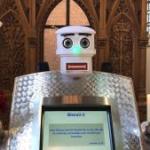Religion and Science Weekend 2024
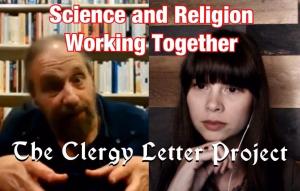
Mark your calendars. The Clergy Letter Project is once again sponsoring Religion and Science Weekend. This year it’s February 9-11, 2024. Sunday is the 11th. What’s the theme? It’s “Religion, Science, and the Common Good.”
Religion and Science Weekend for the Common Good.
Here’s an opportunity for congregations and pastors to enliven Sunday School or even the sermon with the richness of scientific discourse. Science is exciting because we are learning more and more about the magnificence of God’s creation. Indirectly, through science we gain insights into God’s grace, beauty, and providential care.
The Place of Science within Public Theology
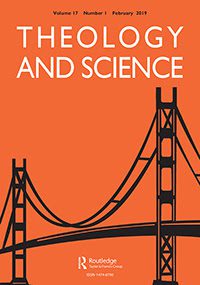
If you’ve followed these Patheos posts, you’ll know that I believe the public theologian should engage science critically with discourse clarification and positively by incorporating science in worldview construction. The public theologian should develop a Theology of Nature with the help of scientific knowledge. In sum, public theology is conceived in the church, critically refined in the academy, and offered to the wider culture for the sake of the common good.
What I like especially about this year’s Religion and Science Weekend is giving attention to the common good. Even though both religion and science have rich interior devotion, they each offer their riches to the wider society for the sake of the common good.
For Science and Religion resources, click here.
What is the Common Good again?
For wisdom about the common good, we need to turn to our Roman Catholic friends. Pope Paul VI defined the common good as…
“…the sum of those conditions of social life which allow social groups and their individual members relatively thorough and ready access to their own fulfillment.” (Pope 1965).
Systematic theologian Anne Clifford draws out the implications of a global common good for an eco-theology that benefits from scientific knowledge.
“A theology of creation that earth can live with calls for commitment to solidarity with humans and earth’s other-kind and to all-encompassing global common good” (Clifford 2011, 249).
Regaining Trust in Science
I suggest that we in the churches have an opportunity to do a favor for science. Over the last decade, trust in science has suffered due to political rivalry, misinformation, disinformation, and such. Because of the morality of knowledge at work within the scientific enterprise, scientists represent a model of intellectual integrity that could benefit all of society.
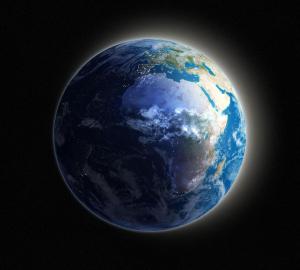 Are scientists perfect and sinless? By no means. But the scientific ideal of objective and unbiased knowledge is worth lifting for admiration and emulation.
Are scientists perfect and sinless? By no means. But the scientific ideal of objective and unbiased knowledge is worth lifting for admiration and emulation.
Last autumn I participated in a research panel for the Aspen Institute on just this problem. See the Aspen Institute report, Building Bridges, Earning Trust: The Why and How of Public Trust in Science.
“Focus on deliberate disinformation, which is highly organized and produces victims. Core strategies for combatting disinformation include connecting local journalists with scientists, cracking down at the point of amplification, and creating an emotionally appealing counternarrative.”
Jesus’ disciples should take a stand against deliberate disinformation while gently correcting misinformation and the tenets of materialist atheism.
Religion and Science Weekend: Conclusion
I recommend we ask the scientists within our congregations to stand up and tell their faith communities what they do and why trustworthy scientific knowledge is necessary for the common good.
Patheos SR 1019 Religion and Science Weekend 2024
For additional reading you might try clicking on one of these.
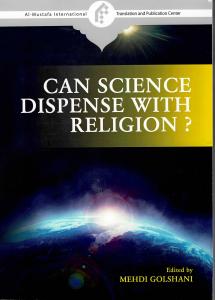
Can Science Dispense with Religion?
What is Truth in Science and Theology? Part One
What is Truth in Science and Theology? Part Two
Science for the Church? Greg Cootsona
Ecotheology when “It’s Time to Act”
The Danger of Free Will Denial
Quantum Theory, God, and Carl Peterson
Astrotheology as Public Theology
Should Christians Dump Darwin?
▓
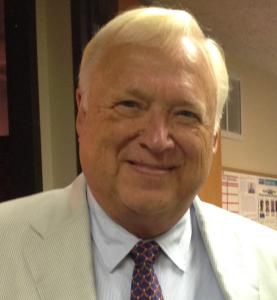
Ted Peters (Ph.D., University of Chicago) is a public theologian directing traffic at the intersection of science, religion, and ethics. Peters is an emeritus professor at the Graduate Theological Union, where he co-edits the journal, Theology and Science, on behalf of the Center for Theology and the Natural Sciences, in Berkeley, California, USA. He recently co-edited Astrobiology: Science, Ethics, and Public Policy (Scrivener 2021) as well as Astrotheology: Science and Theology Meet Extraterrestrial Intelligence (Cascade 2018). He also co-edited Religious Transhumanism and Its Critics (Lexington 2022) and The CRISPR Revolution in Science, Ethics, and Religion (Praeger 2023). Peters is author of Playing God: Genetic Determinism and Human Freedom (Routledge, 2nd ed, 2002) and The Stem Cell Debate (Fortress 2007). See his blogsite [https://www.patheos.com/blogs/publictheology/] and his website [TedsTimelyTake.com].
▓
Bibliography
Clifford, A., 2011. Creation. In: Systematic Theology: Roman Catholic Perspectives 2nd ed. Minneapolis MN: Fortress, pp. 201-253.
Golshani, Medhi, 2022. Can Science Dispense with Religion? Tehran: Institute for Humanities and Cultural Studies.
Peters, T., 2017. Anticipating the Renewal of Earth: Theology and Science in Laudato Si. Interface Theology 1:2, pp. 31-44.
Peters, T., 2018. Science and Religion: Ten Models of War, Truce, and Partnership. Theology and Science 16:1, pp. 1-43.
Peters, T., 2018. Toward a Galactic Common Good. In: The Palgrave Handbook of Philosophy and Public Policy. New York: Macmillan Palgrave, pp. 827-843.
Peters, T., 2019. Allies in the Struggle Against the Post-Truth Swarm. Theology and Science 17:4, pp. 427-430.
Peters, T., 2021. Public Theology, Discourse Clarification, and Worldview Construction. Theology and Science 19:1, pp. 1-4; DOI.org/10.1080/14746700.2020.1869672 .
Peters, T., 2021. “Natural Science within Public Christian Philosophy and Public Systematic Theology.” Forum Philosophicum 26:1:13-34. DOI: 10.35765/forphil.2021.2601.03
Peters, T., 2023. The Voice of Public Theology. Adelaide: ATF.
Pope, Paul VI., 1965. Gaudium et Spes, Vatican City State: The Holy See.




